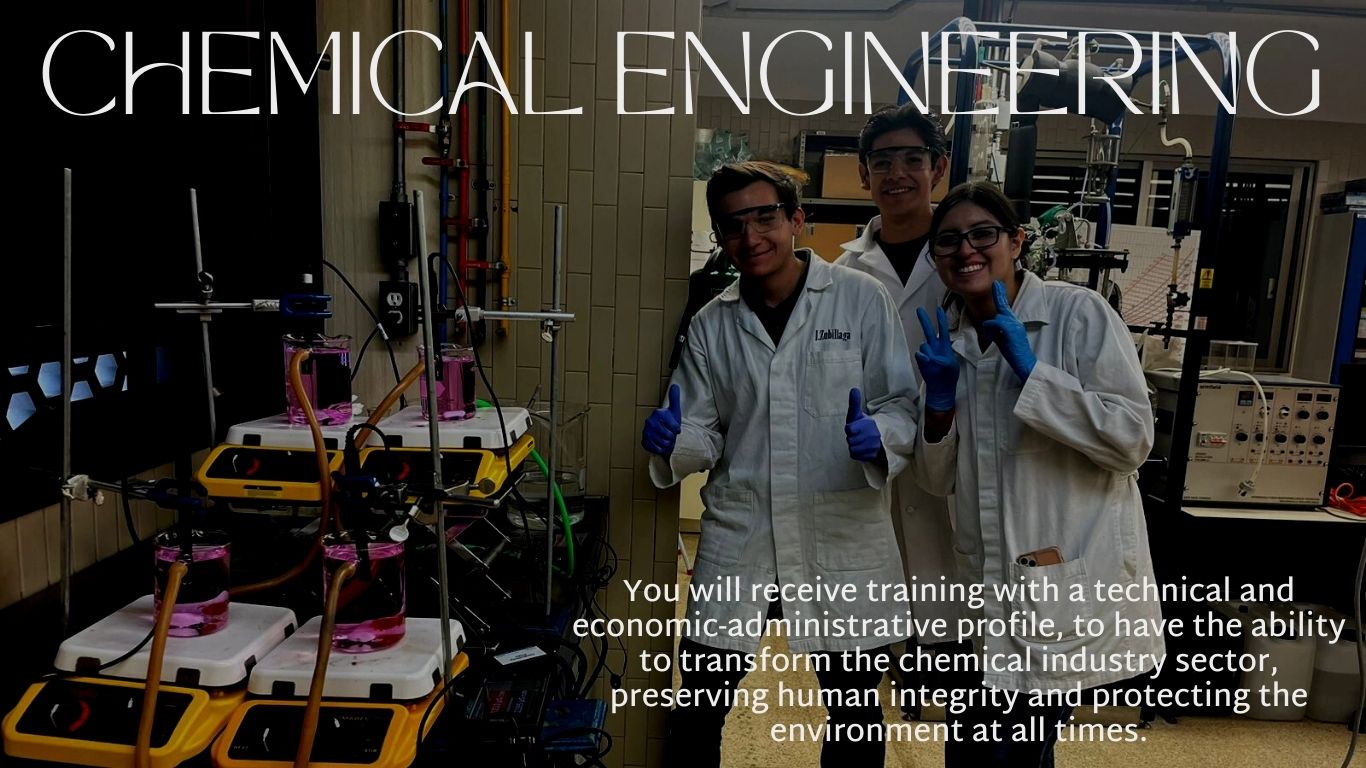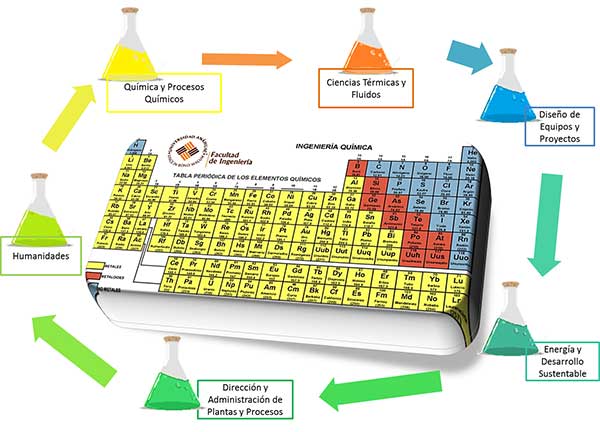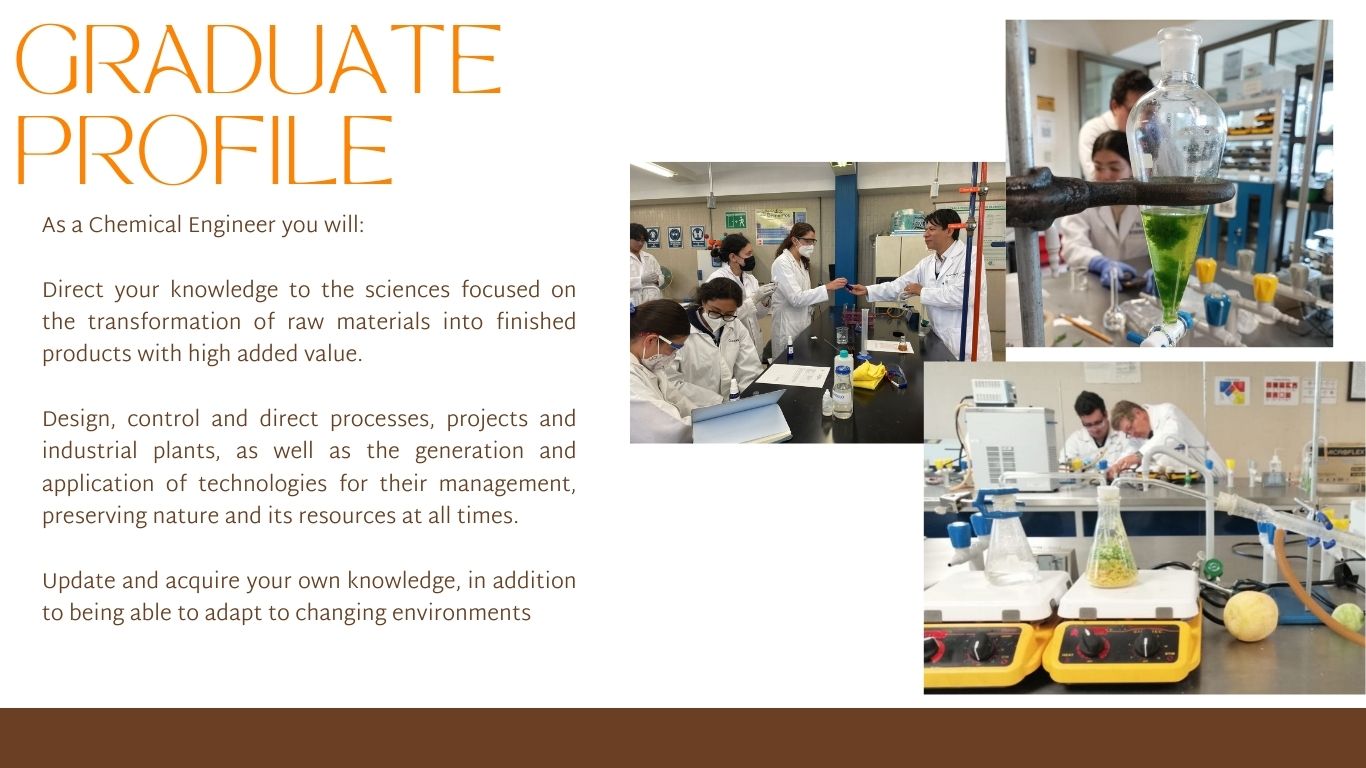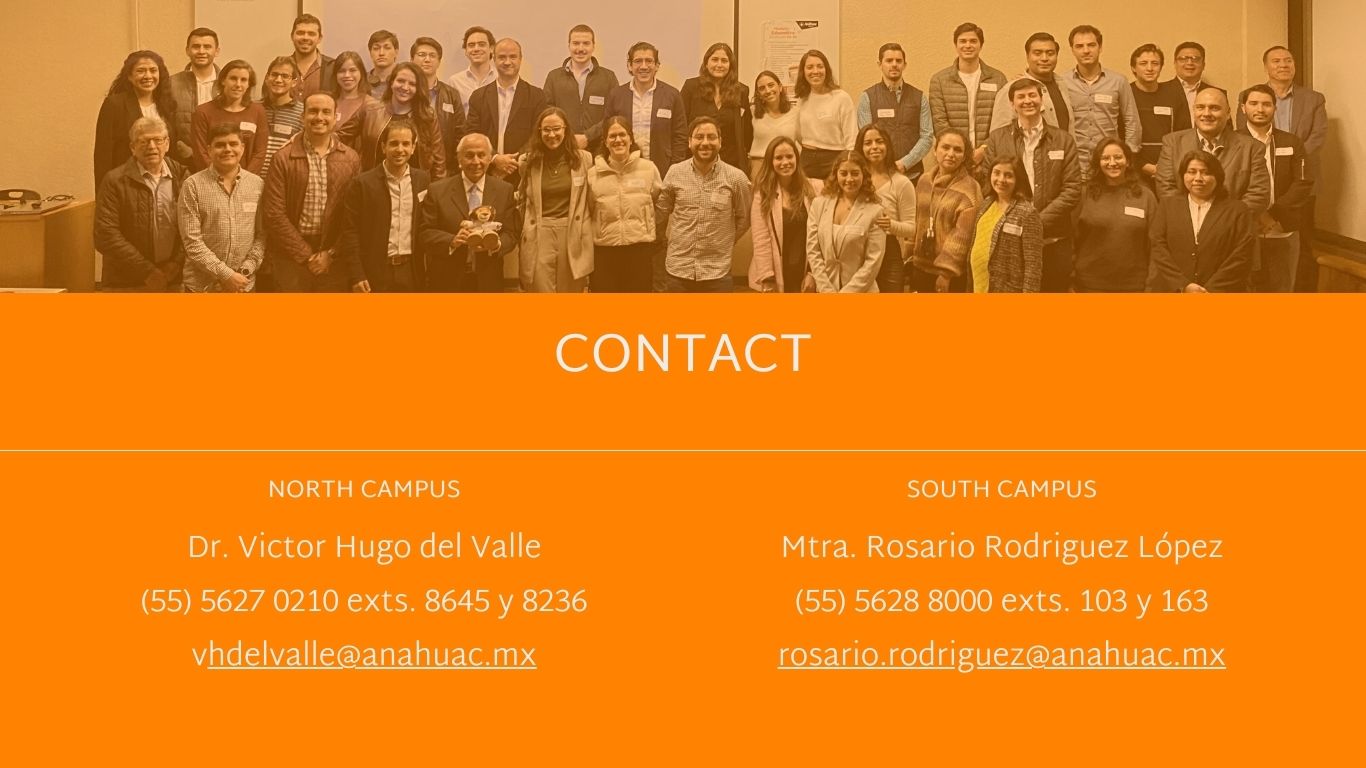Chemical Engineering

 | This Engineering has the accreditation of CACEI (Consejo de Acreditación de la Enseñanza de la Ingeniería, A. C.). |
 | Accredited by the Engineering Accreditation Commission of ABET, under the commision's General Criteria and Program Criteria for Chemical, Biochemical, Biomolecular, and Similarly Named Engineering Programs. |
ABET accreditation for this program is only valid in North Campus.
The Chemical Engineering program, in accordance with its constituencies, has developed a set of Program Educational Objectives (PEO’s). These objectives were originally generated in consultation with faculty members and from discussions with alumni and employers. Afterwards, they were validated by the Engineering Advisory Committee. Chemical Engineering graduates are expected to attain the following PEO’s within a few years from graduation:
- They have a comprehensive education that enables them to perform and serve excellently in managerial positions in operations, maintenance, services, and/or management in national and international companies.
- They have a positive impact on society by getting involved in the design, construction, start-up, and/or maintenance of equipment, processes, and/or industrial plants.
- They apply engineering criteria to solve problems in various contexts (technological, financial, management, etc.).
- They perform as project leaders, applying ethical and sustainability principles.
- They contribute to the development of individuals and society through the creation and consolidation of new companies and business.
- They pursue continuing education and graduate studies in areas related to chemical engineering.
- They work and communicate effectively and interdisciplinarity with other areas of their organization to set goals, plan tasks, and achieve objectives.
Student Outcomes
- An ability to identify, formulate, and solve complex engineering problems by applying principles of engineering, science, and mathematics
- An ability to apply engineering design to produce solutions that meet specified needs with consideration of public health, safety, and welfare, as well as global, cultural, social, environmental, and economic factors
- An ability to communicate effectively with a range of audiences
- An ability to recognize ethical and professional responsibilities in engineering situations and make informed judgments, which must consider the impact of engineering solutions in global, economic, environmental, and societal contexts
- An ability to function effectively on a team whose members together provide leadership, create a collaborative and inclusive environment, establish goals, plan tasks, and meet objectives
- An ability to develop and conduct appropriate experimentation, analyze and interpret data, and use engineering judgment to draw conclusions
- An ability to acquire and apply new knowledge as needed, using appropriate learning strategies

Knowledge Areas:
- Chemistry and Chemical Processes (Unit Operations)
- Fluids and Thermal Sciences
- Energy and Sustainable Development
- Chemical Facilities and Projects Management and Administration
- Equipment, Process, and Project Design
Choosing certain elective subjects allows you to obtain a Diploma of specialization, which is an additional tool to become a professional with a greater field of labor action.
Facility and Project Management Diploma
Efficient Energy Use and Sustainable Development certificate

Curricular Model 2025
Curricular Model 2016
Curricular Model 2010
| Program: Chemical Engineering | Number of New Students | Number of Graduated Students | Number of Current Students |
| 2024-2025 Period | 16 | 28 | 87 |
| 2023-2024 Period | 20 | 22 | 100 |
| 2022-2023 Period | 15 | 29 | 112 |
| 2021-2022 Period | 30 | 17 | 123 |
| 2020-2021 Period | 33 | 18 | 108 |






